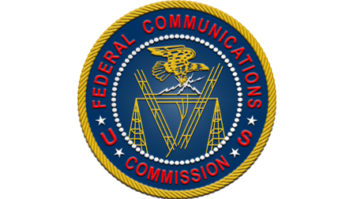WASHINGTON�The Federal Communications Commission is changing its rules to allow, and in some cases, require that legal challenges be filed at the commission via email rather than snail mail or a knock on the door.
�
In an order released last week, the FCC said it had revised its rules to allow parties to notify the FCC of lawsuits by email.
�
In the case of informing the FCC that a party wants to change the legal venue of a challenge, the notification must be by email given the time sensitivity.
�
For example, in media ownership challenges, broadcasters prefer the D.C. Circuit and anti-consolidation advocates the third, so challenges to the same rules could be filed in both. The court then holds a lottery if the parties have informed the FCC within 10 days of an FCC decision that they are challenging it and where and that winds up being in at least two different circuits.
�
Up until now, the FCC had required filings in person within 10 days, but given the potential security concerns, it will now require them via email (the FCC recently stopped requiring cable operators to publicly identify where their principal head ends are located for similar concerns about security).
�
“These procedures will allow for timely service on the Commission without raising the issues with respect to commission security requirements that are currently presented by service in person,” it said. “We also expect that this method of service will be more convenient for most petitioners and their counsel,” it said.
�
The FCC also said it will allow, and encourage, petitioners not seeking to participate in a venue lottery to use email as well, though those parties are under no obligation to serve the notice on the FCC at all if not seeking that lottery.
�
The commission also amended the rules to allow, but not require, email for notification of lawsuits filed against it.
�
The FCC did not seek comment on the order, saying since it was a revision to a procedural rule it did not need to.
�
It also did not perform a regulatory flexibility analysis or submit it for review under the Congressional Review Act for the same reason.�
��
� B&C�
�











